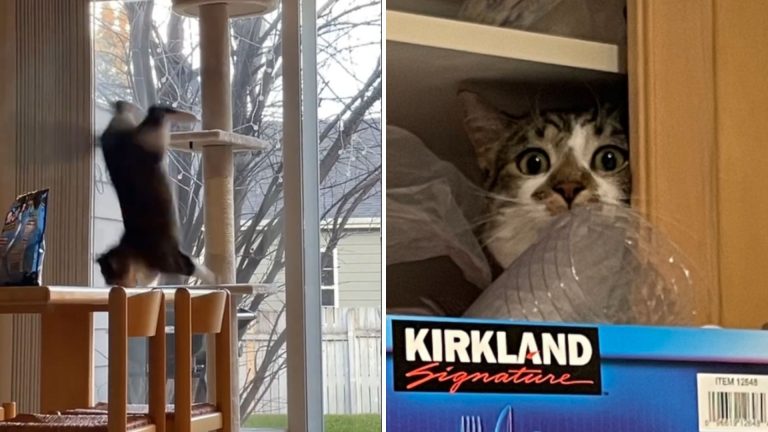How Long Can You Leave Your Feline Companion Home Before She Causes Absolute Chaos

Wondering how long your beloved cat can be left home alone does not make you a bad pet parent. We all have work or obligations that take us away from home for a few hours.
However, I understand that this question can be challenging for new cat owners or those who still feel anxious about leaving their pets alone.
If you’ve recently adopted a kitten, or it’s your first time having a cat, regardless of age, it’s not advisable to leave them alone for extended periods.
When you bring a cat into your home, they need time to adjust to their new surroundings and to bond with you, their new forever owner. During this adjustment period, it’s crucial not to leave them alone.
It’s also important to spend as much time as possible with your new cat to establish a strong bond.
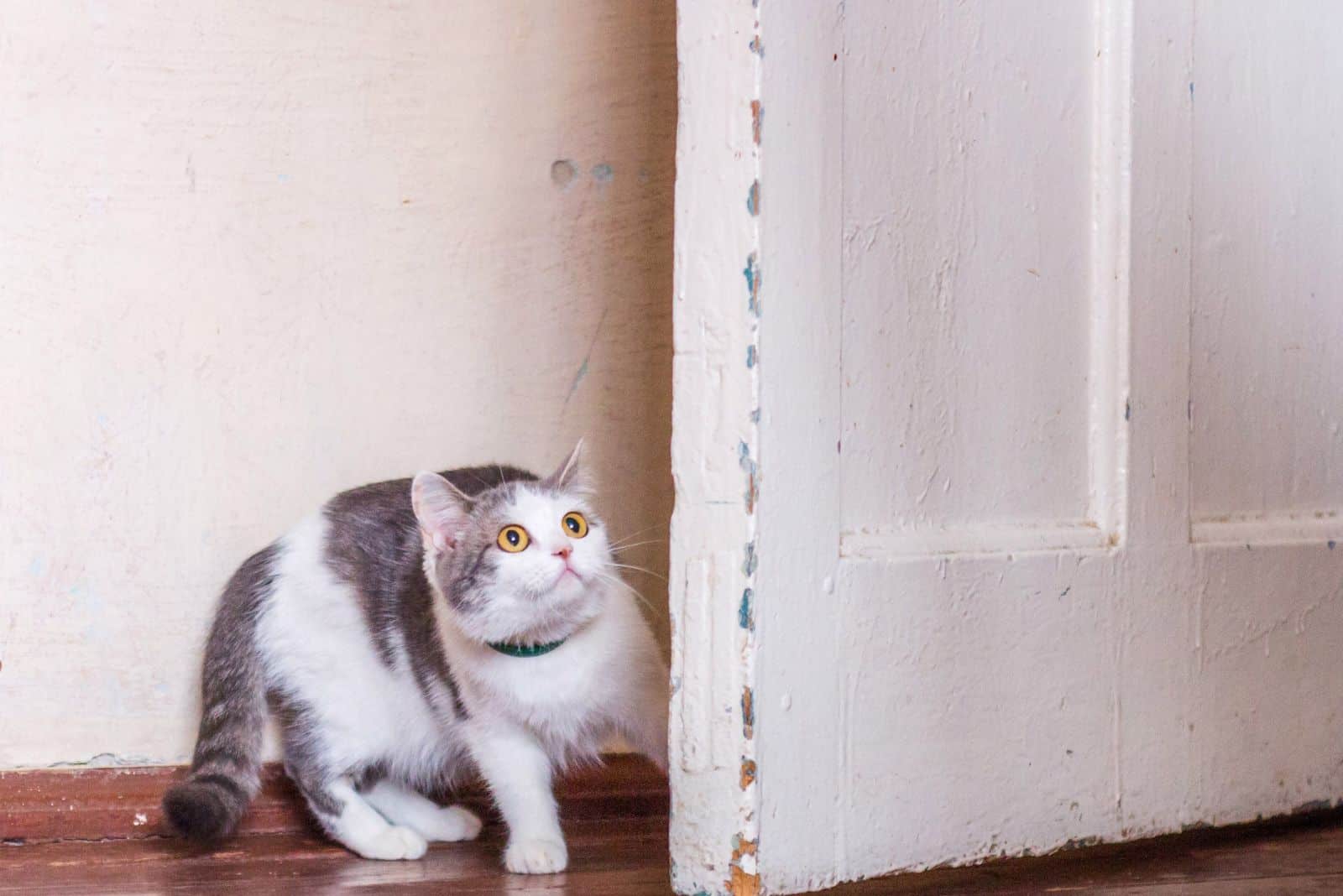
If you’ve adopted an adult cat from a shelter or elsewhere, it’s recommended to keep them indoors for the first week to prevent them from running away and trying to return to their previous owners or seek a familiar environment.
Even if you’ve adopted a kitten, an abandoned cat, or a cat that instantly bonded with you, there are still potential risks if you leave them home alone.
While some of these risks might be common knowledge, it doesn’t hurt to briefly mention them. If you’re only going out for a few hours, these risks are less likely to occur.
1. Illness Or Injury
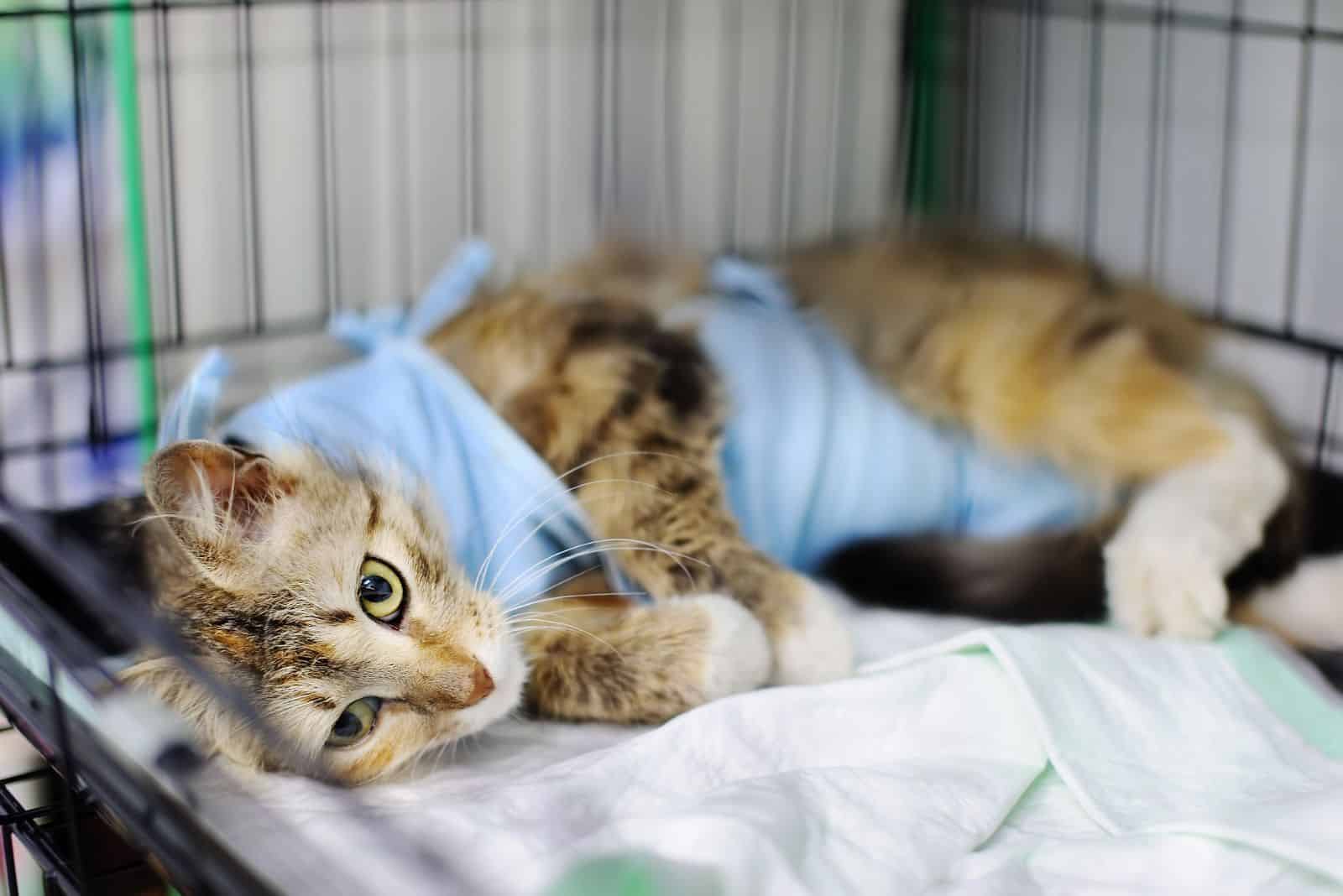
If you leave your cat alone for a longer period of time, it means their food and water will sit out in the open during that time as well.
Wet cat food should not be left at room temperature for more than four hours as it can promote harmful bacterial growth. Dry cat food can also change and become unappetizing to your cat if left out for too long.
Although cats can survive without water or food for about three days, it’s not advisable for their overall health. Additionally, your cat might injure itself by playing with electrical cords or breaking fragile objects.
Be aware of which plants are unsafe for cats, as some indoor flowers can be poisonous.
2. Separation Anxiety

Some cats, regardless of their breed, can experience separation anxiety. A recent study, published by the National Library of Medicine, revealed that 13% of cats included in the research showed negative behavioral traits when left home alone.
Destructive behavior, excessive vocalization, peeing outside their litter box, plant chewing, or attempting to run away are all behavior traits that can occur, although they are not very common.
Misbehavior in cats can lead to an insecure attachment with their owner rather than a secure and loving bond. It’s important to provide cats with a sense of security and safety.
3. Cat Transforming Your Cozy Home Into A Messy One
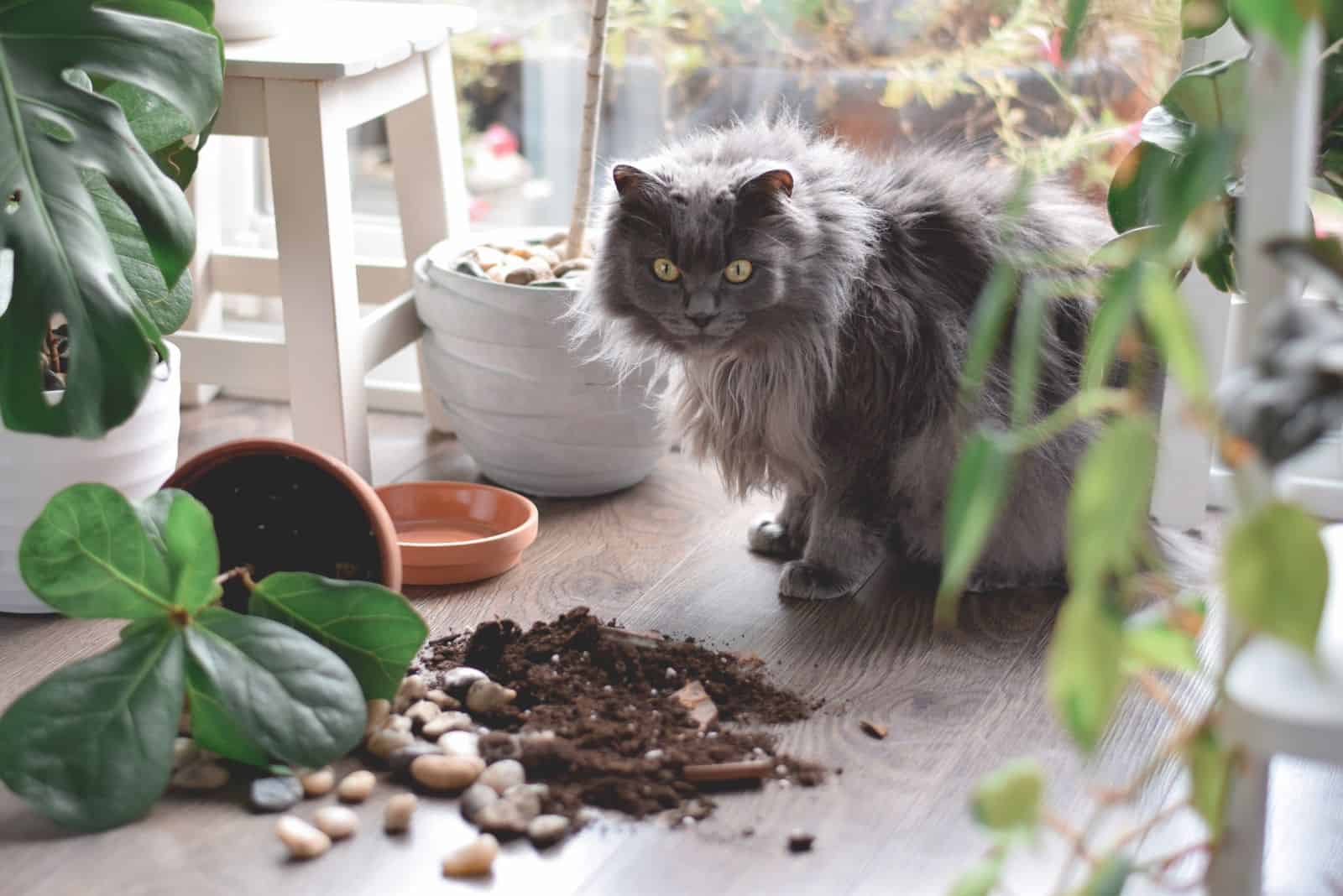
Some cats are prone to mischief when on their own; they might scratch the furniture or tear your curtains apart, for example. While this behavior is not dangerous for your cat, it should be addressed and discouraged.
Provide your cat with plenty of toys to keep them entertained while alone, and consider a cat tree or scratching posts as alternative outlets for their energy.
4. Stop Your Cat From Developing Bad Behavior
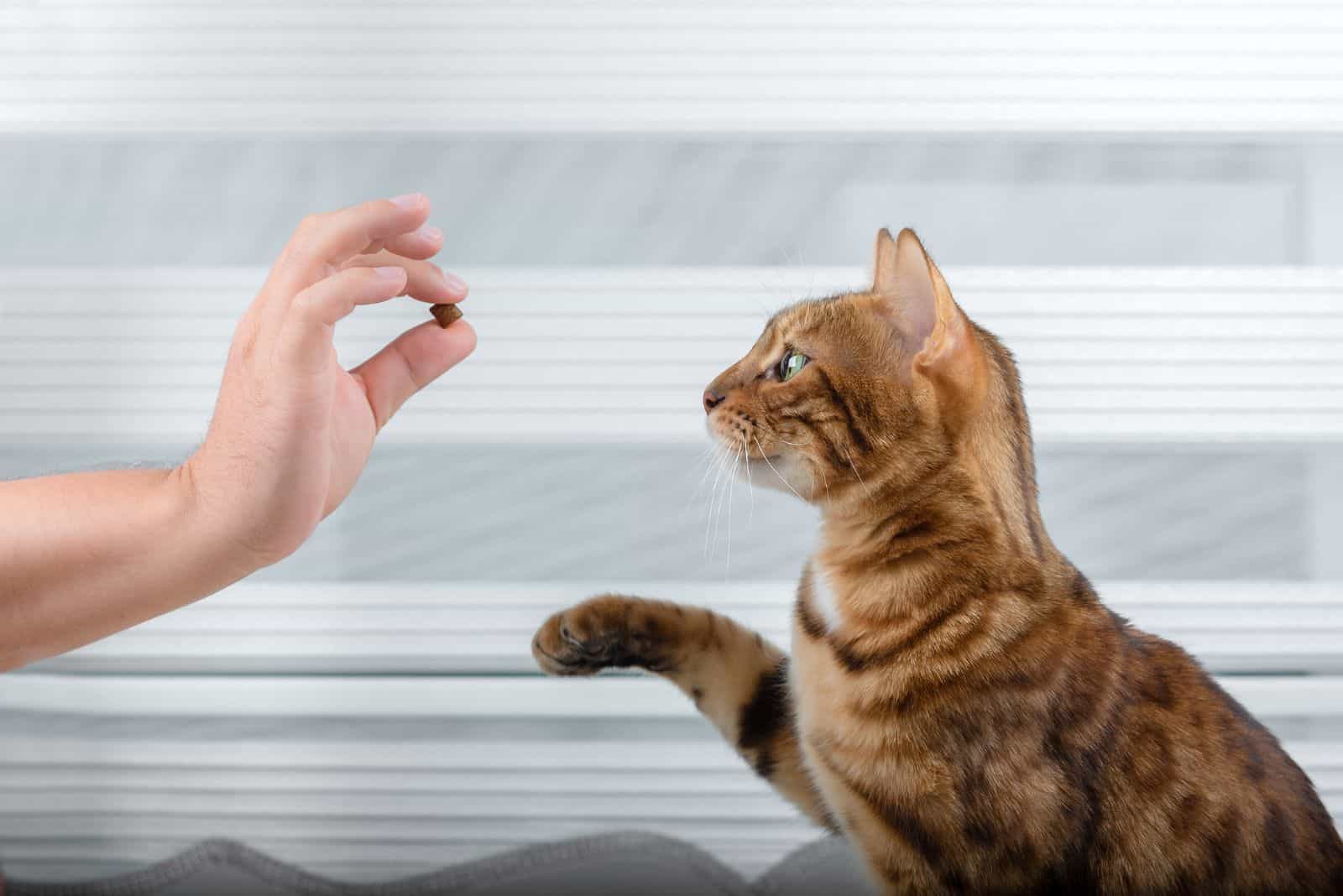
Avoid letting your cat form habits of negative behavior. If you leave your cat alone for too long, it may develop bad habits.
However, it’s not your cat’s fault. Prolonged periods of being alone can make their litter box, food, and water unappealing, leading to additional problems. Your cat may become frustrated, resulting in peeing or pooping outside the litter box.
Furthermore, their emotional state can change significantly. Cats left alone for extended periods can develop antisocial behavior and anxiety.
Anxious cats are more likely to hide and react aggressively when approached, displaying behaviors such as hissing, scratching, and biting.

So, Is It Ok To Leave Cats Alone For, Let’s Say, 3 Days?
No! No matter how independent you may think your cat is, leaving it alone for three days is not advisable!
You Can Leave Your Cat Alone For A Maximum Of 24 To 48 Hours.
As I already mentioned, leaving your cat alone for longer periods of time can lead to changes in its emotional state and potential health issues such as diarrhea, vomiting, or loss of appetite.
Anything More Than 48 Hours Calls For Trouble!
If you really need to leave your cat for any reason whatsoever, it’s crucial to have a friend, or a family member, or a professional cat sitter look after your cat until you get back.
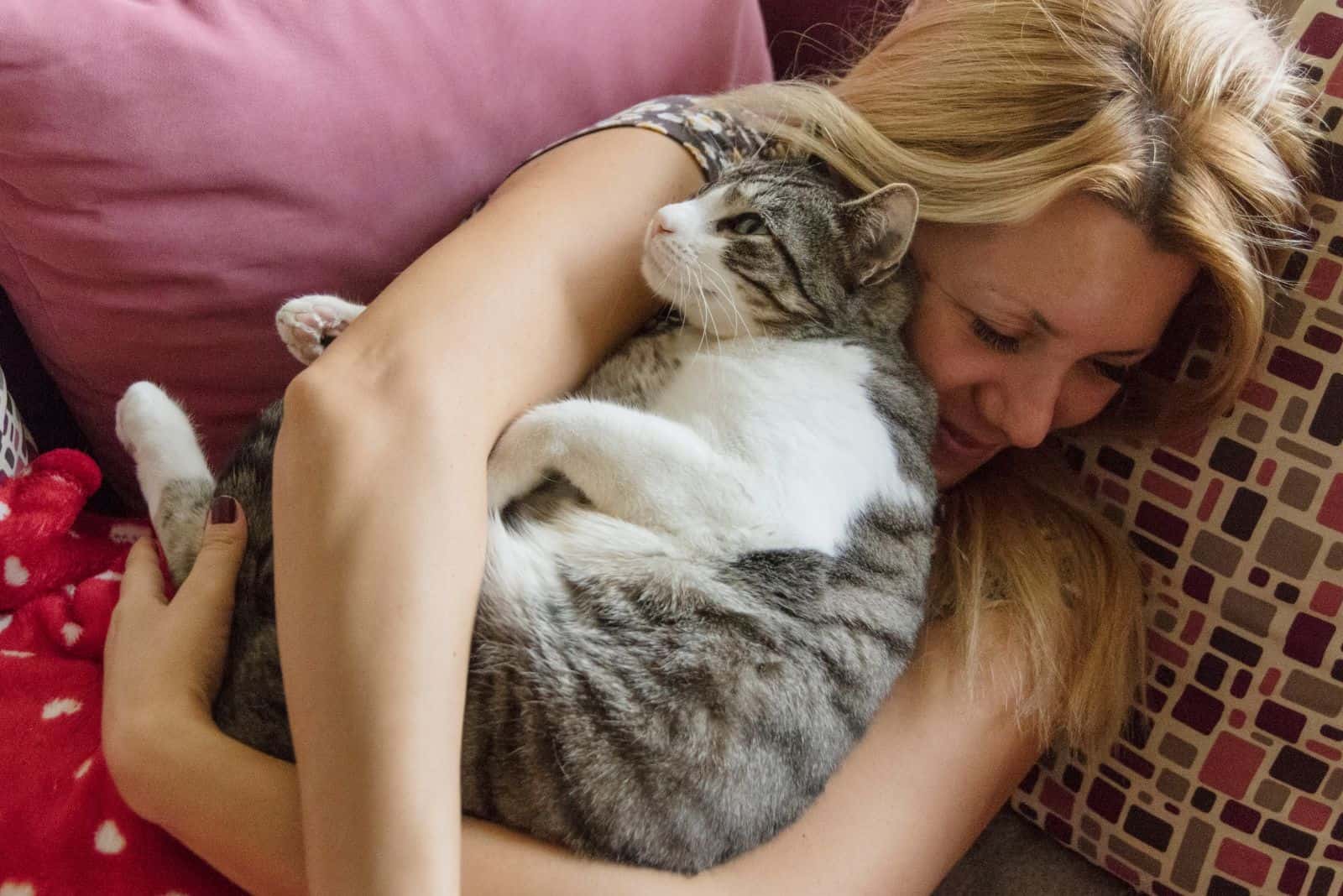
Here are some helpful tips that will help you prevent damage around the house and ensure your cat’s safety:
• Always clean your cat’s litter box. Do not leave the house without leaving a fresh and clean litter box for your cat.
• Clean the food and water bowls thoroughly! Fill them up with enough food and water to last until you return.
• Remove any “dangling threads.” Cats love playing with strings, but strings can be dangerous and pose a risk of entanglement or strangulation.
• Cover anything electrical! Hide and cover up any electric cables around your house. Even though many cables are now designed to be “cat-proof,” so cats can’t easily chew through them, it’s safer to prevent any accidents or damage.
• Clean your tables and countertops! Cats may knock items off counters, leading to broken glass or fragile ornaments.
• Make sure you don’t have any toxic plants accessible to your cat. Keep any plants out of reach because you don’t want your cat ruining a perfectly good Calathea.
• Provide your cat with its own space. Allow your cat to explore the whole house, but ensure they have a safe and relaxing space of their own when you’re not around. Scratching posts and toys suitable for solo playtime can be beneficial.
• Keep the toilet seat down! You don’t want wet paw prints, let alone, germ spread around the house.
• Keep all bathroom supplies out of reach. Make sure your cat can’t reach any toxic cleaning supplies or cosmetics.

I hope this answers all your questions and alleviates any concerns. You can leave your cat alone for a day or two as long as you provide everything they need and follow the tips and advice provided.
Building a strong bond with your cat and making them feel secure in their new home will help prevent any issues in the future.

